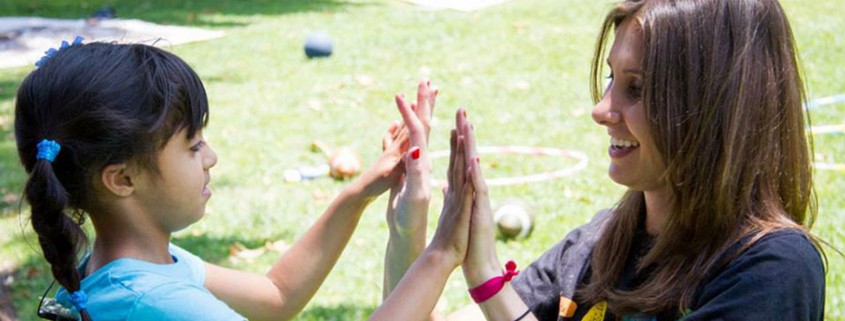Nonprofit founded by two seniors gets $368,000 grant
Ending All Roads to Silence, a nonprofit organization started by seniors Natalie Tecimer and Eli Wininger, received a $368,000 grant to deliver medical technologies and services to hearing-impaired children.
After six months of negotiations, the Jamshetji Tata Trust has pledged to fund EARS’ efforts to bring hearing aids and cochlear implants to children in rural areas of southwest India. EARS serves a transnational advocacy network to help the hearing-impaired.
Tecimer, who is hearing-impaired herself, originally came up with the idea for EARS as a freshman while taking a course with Professor Steven Lamy called Saving Strangers Beyond Borders. For a class project, Tecimer constructed a proposal to address hearing impairment internationally. After reviewing her plan, Lamy encouraged her to put it into action. Tecimer then partnered with Wininger to recruit team members and become an official USC organization. In 2013, EARS became a registered 501(c)(3) nonprofit.
“There are a lot of deaf-advocacy groups, but we’re not one of them … We believe that hearing impairment is something that can be fixed,” Tecimer said. “Just like anything else, if you don’t have the right tools, [hearing impairment] can be crippling. If you don’t have the hearing aids, the cochlear implants, the speech therapy, and the tools in the classroom … and if you can’t advocate for yourself, then you are at a significant disadvantage. That’s why we want to connect people with these resources.”
Since its founding, EARS has raised $23,000, which has supplied 60 hearing aids of various power levels to 30 children in India. The organization worked with a Rotary club in southwest India to find a doctor and audiologist in the area.
Last March, Tecimer was one of five USC students selected to speak at the Board of Trustees conference as a part of a panel titled Courage to Make A Difference. At the conference, she was introduced to Ratan Tata, a member of the university’s Board of Trustees. Tata put Tecimer in touch with the managers of his trust to financially support EARS. Over the past six months, Tecimer collaborated via Skype with doctors from All India Institute of Speech and Hearing and representatives from Advanced Bionics, a global cochlear implant company, to select hearing aids and cochlear implants for children. The group determined that new waterproof models of hearing aids by Advanced Bionics would best meet the needs of the children they aim to help in India.
“You want to give something that’s sustainable,” Tecimer said. “[It’s] important for the kids to be able to accidentally drop their cochlear implant or take a shower with it by mistake and still know that it will work.”
In March, a delegation of EARS members, all USC students, will travel to India to oversee the distribution and installment of the hearing aids and cochlear implants. The $368,000 grant will establish a three-year program that will provide devices to 35 children in the Mysore community every year.
EARS has also had a local impact. During the fall of 2013, Tecimer and EARS developed a music program for hearing-impaired students at Farmdale Elementary School in the Lincoln Heights neighborhood. The six-week program helped a group of 12 8-year-old students overcome stigma of hearing loss and encouraged them to interact with other students. In addition, participating in musical activities, such as drumming, allowed the students to experiment with different sounds. Recently, the EARS program was approved by the Los Angeles Unified School District Special Education Local Plan Areas and received funding from the district to expand its implementation.
“It was a music group, but it wasn’t only about the music … It was more about the kids getting in touch with how they hear. It makes them more educated when they talk to their audiologist … the transformation was cool.”
On Saturday, EARS held its fourth annual benefit concert at Ground Zero Performance Café to raise awareness for the cause.
“Being a part of the EARS has changed my perception of hearing impairment. Before we started the organization, it wasn’t something I thought of often,” said Wininger, a senior majoring in business administration and accounting. “I don’t look at hearing impairment as a disability anymore … It’s something people can easily overcome with the right tools and the right guidance.”
Correction: A previous version of this story stated that a Rotary club in India partnered with EARS to distribute hearing aids. The Rotary club actually worked with EARS to find a doctor and audiologist in India. The Daily Trojan regrets the error.

